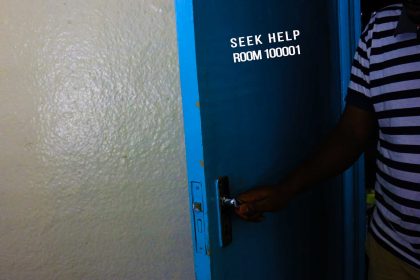
Why is mental illness or seeking counseling for mental wellness such a taboo among Christians?
Research shows more than 70% of those who suffer from mental illnesses receive no treatment from health care staff and two of the factors contributing to this is prejudice against people with mental illnesses and discrimination against those who have been diagnosed (Claire Henderson, 2013).
What do you think of when you hear that someone is experiencing a mental illness? Do you feel concerned, fearful, or confused? Sometimes people avoid those who experience mental illnesses. Would you avoid someone who has a broken their hand or was sick from malaria? Mental illnesses are just like any other illness. It’s very important to understand that mental illnesses are no one’s fault and are not a sign of weakness.
No shame
Many people think having a mental illness “ni kuwachizi” but it is not! When we have malaria or H-Pylori we take visit the doctor but when we experience mental illnesses we are shy to get treatment/help that we need. On mental illnesses, we tell people to snap out of it as if it is something they can just forget about which is wrong. Nobody should feel ashamed of seeking help or be ashamed of taking medication for mental health needs. The brain is an organ like any other and can develop irregularities too!
When your emotions, thoughts, and behaviors start interfering with your relationships negatively, affecting your morale for life and work the right thing to do is to seek help like you would if you were having consistent headaches.
Sometimes believers make others feel like their reason for struggling with mental illnesses is because their faith is not strong enough. Sometimes we ask people to just pray it away, but while it is good to pray it is important to see a professional who can offer the necessary help.
Mental illnesses are not a choice but stigma and ignorance are – we need to stop this!
Professionals who help in mental illnesses recovery (Association, 2014):
- A Psychiatrist is a medical doctor with a specialty in diagnosis and treatment of mental illnesses and they can prescribe counseling and/or medication for recovery.
- Psychologists have training in diagnosis, assessing, and treating mental health disorders. They have a doctorate or a master’s in psychology with a specialty in clinical neuropsychology or psychology. They have expertise in the assessment of emotional and cognitive functions, diagnosis of emotional and cognitive disorders, and psychological testing but they cannot prescribe medication.
- Counselors are usually certified or registered who are trained to assess mental health problems and help in recovery through different counseling. They are not medical doctors and cannot prescribe medication. They use counseling skills to improve one’s well-being.
Wrong attitudes
The following statements show wrong attitudes towards those experiencing mental illness that we must change. “
- Just surrender your mental illness to God? Would you tell someone with cancer or pain in any other body part like that or you would say “as we pray, please seek medical attention”.
- “Mental illness is a punishment for one’s sin…” This is not true. Mental illness is as a result of many things biological, environmental, socio-political, and even economic situations.
- “Your mental illness is because you are weak and not strong enough to handle life’s stresses…” Remember our experiences in life are very different and we have different abilities & personalities, just because you went through something without a lot of stress doesn’t mean another person can’t.
- “It is your fault that you are suffering mentally right now…” This is insensitive and unkind to someone who is already suffering. This has devastating effects especially if the person has gone through traumatic events such as rape or violence
- Judging those going through mental illnesses which is a major barrier for help-seeking. As Grace shared in her testimony, “the last thing you want is judgment because you are already judging yourself. What’s worse is running to a place or a person that you hoped could help and they turn you down or judge you. As much as people need to be encouraged to share, the grounds need to be safe enough for people to know that they can share, be heard, and be supported.”
Educating ourselves about mental health is one step towards destigmatizing mental illnesses and help-seeking in our communities. It will help us in changing our attitudes and encourage disclosure for those suffering.




Nice to read, more encouraging